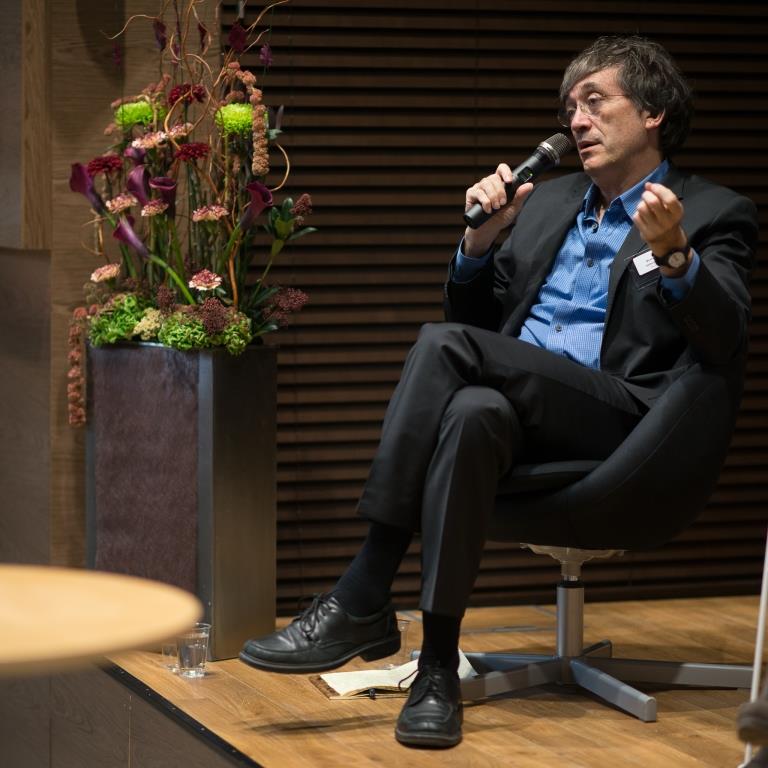Since 2001, Paideia has arranged a number of academic conferences.
The most recent conference took place in Stockholm in 2019 under the theme “1989-2019: Jews in Post-Communist Europe”.

Foto: Jonatam Agami
To date, the following conferences have been arranged by Paideia:
2001
“Exile”
Stockholm
The Biblical narrative begins with banishment. The history of humanity is coincidental with being ‘east of Eden’. In counter-distinction to this estrangement, the narrative relates that the Jewish people were born together with an awareness of being designated for existence on a certain land. As Martin Buber wrote, in his essay On Zion, “It is impossible to imagine a historical Israel as existing at any time without belief… in a God leading first the Fathers and then the whole people into the promised land.” Despite this intention, the vast majority of Jewish history is characterized by an absence of presence on that land, with an accompanying sense of exile. The dual aspects of the concept of exile, the designation for a certain home, and yet a distance from it, have informed Jewish life and have made an impact upon the literary, existential, theological, political, and sociological dimensions of the Jewish people. The inaugural academic conference of the Paideia will focus on various aspects of this phenomenon, and will explore the ramifications of Exile on contemporary identity patterns within Europe and within a world of increasingly mobile and dislocated existence.
2004
“Text and Culture”
Stockholm
Within a Europe in which a search for revival of Jewish learning is taking place, questions of the textual aspects of culture become pertinent. How do text, translations and interpretation affect culture? What uses and abuses of text should be reflected upon as new efforts are made to reconnect with Jewish text and literature? Under consideration will be issues such as: sacred text in multi-cultural settings; paradigms of relationship to Jewish text that are relevant to contemporary Europe; the influences of textual authority structures upon culture. These and other dimensions of the inter-relationship between “Text and Culture” will be analysed and discussed.
2006
“Myth”
Stockholm
Within a Europe in which a search for revival of Jewish learning is taking place, questions of the textual aspects of culture become pertinent. How do text, translations and interpretation affect culture? What uses and abuses of text should be reflected upon as new efforts are made to reconnect with Jewish text and literature? Under consideration will be issues such as: sacred text in multi-cultural settings; paradigms of relationship to Jewish text that are relevant to contemporary Europe; the influences of textual authority structures upon culture. These and other dimensions of the inter-relationship between “Text and Culture” will be analysed and discussed.
2008
“Text, Translatability, and Multiculturalism”
Krakow
Commercial ties between societies, tides of migration, and communication technology are producing porous boundaries between cultures. The consequent challenges are bipolar: On the one hand, increased exposure and integration yield homogenization often accompanied by watered down ‘kitsch’ cultures that fit many tastes by superficially mixing and matching dispersed cultural elements. On the other, attempts to maintain the ‘purity’ of cultures are frequently attended by a rejection of a common agora, and can lead either to an emergence of fundamentalist cubicles from within, or a rampant relativism as viewed from without, or both. In Europe these are some of the contemporary challenges of which the Jewish textual tradition is a part. Three inter-related concepts will be explored at the Paideia 2008 Academic Conference: Text– as a basic transmitter of culture; Translatability – the extent to which cross-cultural understandings result in erosion, perhaps even distortion, of ideas extracted from the context which gave them their refined meanings; Multi-Culturalism, the ability or inability of cultures to seek commonalities while maintaining their integrity.
2011
“Jewish Perspectives on Transformations in Contemporary Europe”
Uppsala
Transformations within the manifold societies in which Jews have lived, along with the shifting locations of Jewish life, by necessity have caused Jewish thinkers to engage in new ways of understanding the central concepts and principles of Judaism. Accelerated by the scientific revolution, the rise of modern philosophy and the Enlightenment, Jewish thinkers have had to consider the timeless versus the timely, and change as both an enriching possibility and a threatening challenge. It might even be claimed that the continual vicissitudes of Jewish life have made Jewish thinkers virtuosos in dealing with adaptation and change.
2014
“German Jewish Migration to Sweden”
Uppsala
Ever since Aaron Isaac from Treuenbrietzen in Brandenburg in the 1770s became the first Jew to be allowed to settle in Stockholm without converting to Evangelical Lutheranism, there has been close contacts between Swedish and German Jewry. German Jews have both migrated and, during the Nazi era, fled to Sweden and in many ways contributed to Swedish cultural and economic life. Swedish Jews have found both spouses and religious and ideological inspiration in Germany and Swedish and German Jews have created commercial as well as intellectual networks binding the two countries together.
Coperation with for Jewish Studies, Uppsala University
2016
“Bayit – Home: A Simple Notion Contested”
Stockholm
The notion of “home” appears to be both intuitively understood and universally appealing: to feel at home seems to be a natural human aspiration. A closer look, however, reveals several perplexities: from the Exile from Eden to present day mass migrations, the ability to be at home has been historically elusive, politically complex, and raises conceptual questions. Is the notion of “feeling at home” truly desirable? Does not the desire to develop and change conflict with static attitudes fostered by “being at home”? Does not feeling at home produce attitudes of entitlement and territorialism? What is the role of “home” in identity-formation, and what are the consequential implications for inclusion, exclusion, and diversity? As experienced by many Jews who were exiled from their historic homeland throughout the vast majority of their existence, many transmuted the notion of “home” into a variety of forms, among them — as Henrich Heine stated — “for the Jew, the text was his homeland”. Do not these transmuted forms conflict with the realities of political sovereignty?
2019
“1989 -2019: Jews in Post-Communist Europe”
Stockholm
The fall of the Berlin wall marked a turning point in modern world history, as well as in modern Jewish history. The transition from communist regimes to democratic establishments, stable or struggling, aroused political, demographic, social and cultural change on the largest scale since the end of the Second World War. Europe has been transformed, the European Union challenged, and global politics overturned. New powers are unleashed on a broad scale from liberalism to chauvinism, from democracy to authoritarianism, from free markets to economic and political corruption.
This conference, marking 30 years from the fall of the Berlin Wall, focuses on the Jews of post-communist Europe as communities, individuals, activists, migrants, agents of change and cultural awakening, and targets of transition, anti-Semitism and renewed memory. For them, 1989 was a milestone not only in European and global history, but in Jewish history too.
The conference aims to take stock of historical processes, challenges and concerns, including the grave concerns of renewed hostility to Jews and to Israel, and the more positive challenges of new freedom, cultural creativity and the realignment of memory. Sweden’s unique vantage point in this historical realignment will be included in the conference discussions.




